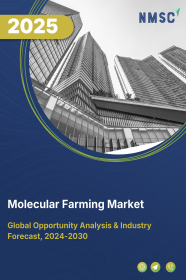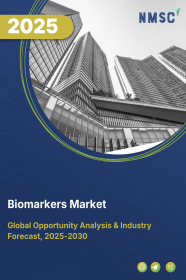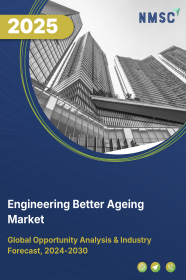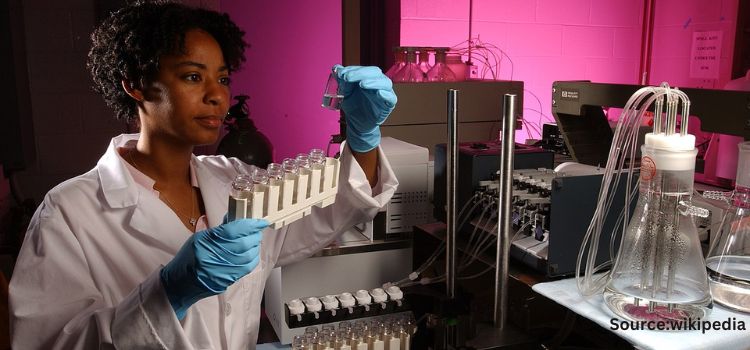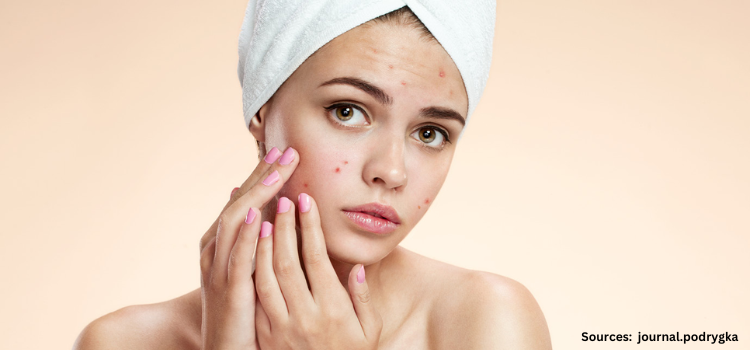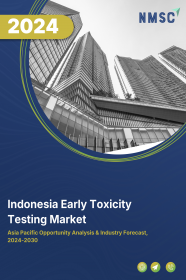
Indonesia Early Toxicity Testing Market by Technique (In Vivo, In Vitro, and In Silico), by Toxicity Endpoint (Genotoxicity, Dermal Toxicity, Skin Toxicity, Ocular Toxicity, Phototoxicity, and Others), by End User (Pharmaceutical Industry, Cosmetic Industry, Chemical Industry, Food Industry, and Others) – Opportunity Analysis and Industry Forecast, 2023-2030
Industry: Healthcare | Publish Date: 22-May-2025 | No of Pages: 93 | No. of Tables: 112 | No. of Figures: 57 | Format: PDF | Report Code : HC766
US Tariff Impact on Indonesia Early Toxicity Testing Market
Trump Tariffs Are Reshaping Global Business
Indonesia Early Toxicity Testing Market Overview
The Indonesia Early Toxicity Testing Market size was valued at USD 82.1 million in 2024, and is predicted to reach USD 146.4 million by 2030, at a CAGR of 10.1% from 2025 to 2030.
Factors such as increasing foreign investment and rising government promotion of traditional medicine and herbal products accelerate the growth of the early toxicity testing market. However, high costs associated with early toxicity testing pose a significant challenge to the market. On the contrary, the integration of advanced in-vitro testing methods offers promising opportunities for market growth by improving the accuracy and dependability of toxicity testing results. These advancements are expected to enhance the market expansion in the coming years. Key players such as MSD, Daewoong Pharmaceutical Company Indonesia, GSK Indonesia, Kalbe Farma, and others are undertaking initiatives such as product launches and collaborations across various countries and regions to maintain their competitive positions in the market. These efforts are expected to drive the adoption of early toxicity testing, enabling quicker identification of safety issues. With advancements in 3D cell culture, the scope of clinical trial risks is reduced, ensuring product safety and regulatory compliance while offering benefits such as reduced late-stage risks, cost reductions, and fewer ethical concerns due to non-animal testing methods, ultimately accelerating market growth.
Increasing Foreign Investment Fuels Market Growth
The rise in foreign investments in Indonesia significantly boosts the early toxicity testing market. Enhanced funding for the pharmaceutical and chemical industries is driving drug development and safety evaluation activities. These investments facilitate the adoption of advanced toxicity testing methods to meet international safety standards, further propelling market growth. According to a report by ASEAN Briefing, Indonesia’s chemical and pharmaceutical industry attracted USD 4.5 billion in foreign investments in 2022 and is expected to grow from USD 7.6 billion in 2020 to over USD 11 billion by 2025. This growing interest in investing in early toxicity testing drives market expansion.
Rising Government Promotion of Traditional Medicine and Herbal Products Drives Market Growth
The Indonesian government’s promotion of traditional medicine and herbal products is fostering growth in the early toxicity testing market. This promotion encourages research and development focused on enhancing the safety profiles of herbal formulations, thus supporting their broader adoption. According to a report by Dexa Group (August 2022), the National Health Insurance (JKN) DAK budget for all medications was around USD 93 million in 2022, with some funds allocated for procuring phytopharmaceuticals and OHT. This increasing support for traditional medicine is contributing to the growth of the early toxicity testing market.
High Costs Associated with Early Toxicity Testing Hinders Market Growth
The significant costs of early toxicity testing present a considerable barrier to market expansion. These costs include the need for advanced equipment, cutting-edge technology, and highly trained professionals, making it difficult for smaller companies and those in developing regions to participate. Consequently, many businesses continue to rely on traditional, more affordable testing methods that are less effective and ethical. This financial burden delays the adoption of modern testing approaches, limiting the overall growth of the market.
Integration of Advanced In-Vitro Testing Methods is Expected to Create Ample Growth Opportunity
The adoption of advanced in-vitro testing methods, particularly 3D cell culture technology, is expected to present substantial growth opportunities in the early toxicity testing market. These models more accurately replicate human tissue and organ complexity, offering a better simulation of organ interactions. By improving the predictability of drug safety and minimizing the need for animal testing, 3D cell cultures provide more reliable and precise toxicity results compared to traditional 2D models. This advancement is poised to enhance early drug development processes and speed up the detection of potential safety risks, driving market growth.
Competitive Landscape
The promising players operating in the Indonesia early toxicity testing industry includes MSD, Daewoong Pharmaceutical Company Indonesia, GSK Indonesia, Kalbe Farma, Eurofins Scientific, Dexa Group, DDReg Pharma, SGS SA, QPS Holdings, ImQuest BioSciences, Lonza, Innoquest Indonesia, PPD Laboratory Services, NAMSA, EviaSearch, and others.
Indonesia Early Toxicity Testing Market Key Segments
By Technique
-
In Vivo
-
In Vitro
-
Cell Culture
-
PCR
-
ELISA
-
Western Blotting
-
Protein Binding Assays
-
-
In Silico
By Toxicity Endpoint
-
Genotoxicity
-
Dermal Toxicity
-
Skin Toxicity
-
Ocular Toxicity
-
Phototoxicity
-
Others
By End-User
-
Pharmaceutical Industry
-
Cosmetic Industry
-
Chemical Industry
-
Food Industry
-
Others
Key Players
-
MSD
-
Daewoong Pharmaceutical Company Indonesia
-
GSK Indonesia
-
Kalbe Farma
-
Eurofins Scientific
-
Dexa Group
-
DDReg Pharma
-
SGS SA
-
QPS Holdings
-
ImQuest BioSciences
-
Lonza
-
Innoquest Indonesia
-
PPD Laboratory Services
-
NAMSA
-
EviaSearch
REPORT SCOPE AND SEGMENTATION:
|
Parameters |
Details |
|
Market Size Value in 2024 |
USD 82.1 million |
|
Revenue Forecast in 2030 |
USD 146.4 million |
|
Value Growth Rate |
CAGR of 10.1% from 2025 to 2030 |
|
Analysis Period |
2024–2030 |
|
Base Year Considered |
2024 |
|
Forecast Period |
2025–2030 |
|
Market Size Estimation |
Million (USD) |
|
Growth Factors |
|
|
Companies Profiled |
15 |
|
Market Share |
Available for 10 companies |
|
Customization Scope |
Free customization (equivalent up to 80 working hours of analysts) after purchase. Addition or alteration to country, regional, and segment scope. |
|
Pricing and Purchase Options |
Avail customized purchase options to meet your exact research needs. |

















 Speak to Our Analyst
Speak to Our Analyst



